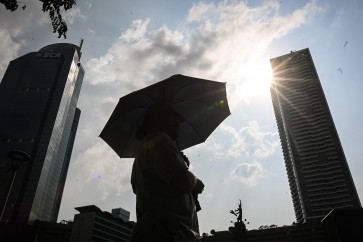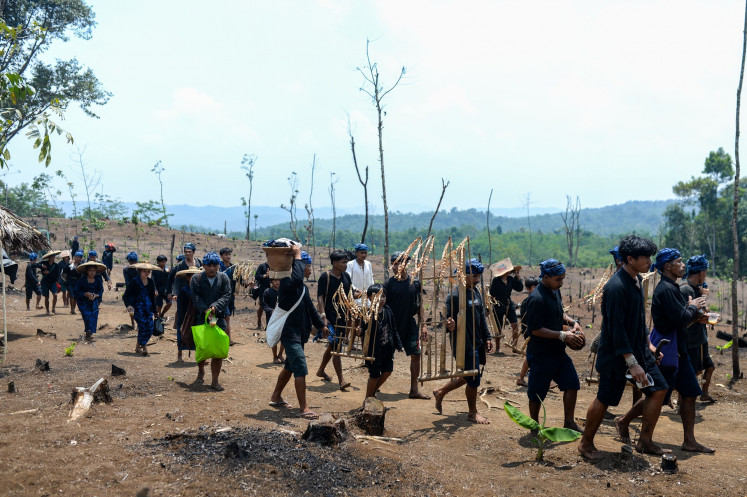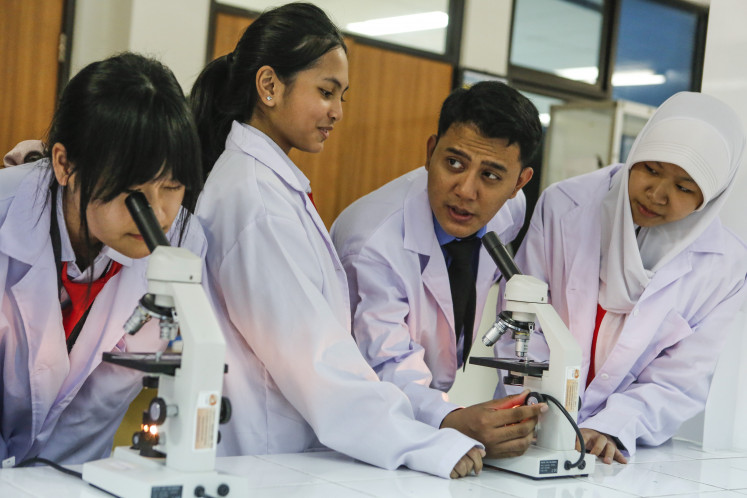Popular Reads
Top Results
Can't find what you're looking for?
View all search resultsPopular Reads
Top Results
Can't find what you're looking for?
View all search resultsASEAN-China trade expected to grow ahead of regional integration
China's Minister of Commerce Gao Hucheng and his fellow economic ministers from the Association of Southeast Asian Nations (ASEAN) have praised the strong economic relationship between the two economies, and aired hopes of posting higher trade volumes by the end of 2015
Change text size
Gift Premium Articles
to Anyone
C
hina's Minister of Commerce Gao Hucheng and his fellow economic ministers from the Association of Southeast Asian Nations (ASEAN) have praised the strong economic relationship between the two economies, and aired hopes of posting higher trade volumes by the end of 2015.
The economic ministers were pleased that the world's second largest economy remained ASEAN's biggest trade partner.
By the end of 2013, China's total trade with ASEAN reached US$350.5 billion, or 14 percent of the association's total trade.
The ministers expressed confidence that the trade volume of the two economies would grow larger in 2015 when ASEAN implemented its regional integration plan.
"The ministers reaffirmed their commitment to achieving the joint target of $500 billion in trade by the end of 2015," the ministers said in a joint statement after the 13th ASEAN Economic Ministers (AEM) Ministry of Commerce (MOFCOM) consultations in Naypyidaw, Myanmar, on Tuesday.
The meeting also highlighted the progress that had been made in the implementation of ASEAN-China Free Trade Area (ACFTA). Ministers affirmed the continuing commercial relevance of the ACFTA and recommended an upgrade in its design. The upgrade, they said, would further evidence the strong relationship between ASEAN and China.
"It [the upgrade] will also deepen the economic interests of both sides in a mutually beneficial manner."
During the consultation, which was chaired by Myanmar's Minister for National Planning and Economic Development Kan Zaw, the economic ministers endorsed some key elements that would focus the ACFTA upgrade and assigned senior economic officials from each of the related countries to begin negotiating the details.
In the meantime, senior economic officials were also told to complete their negotiations on customs procedures and trade facilitation (CPTF) as well as a review of the rules of origin.
Trade Ministry director for ASEAN cooperation Donna Gultom said the AEM-MOFCOM consultations reviewed several issues affecting trade between ASEAN and China. "We talked about issues related to, for example, trade in goods. We also renewed our commitments in trade and discussed how to make the trade beneficial to all sides," she told The Jakarta Post.
During the consultations, the ministers also welcomed the establishment of the subcommittee on Standards, Technical Regulations and Conformity Assessment Procedures (STRACAP), as well as Sanitary and Phytosanitary (SPS) measures. The subcommittees were convened during their inaugural meetings in March 2014.
The key tasks assumed by the subcommittees are to develop the work program to implement the related Protocol on Technical Barriers to Trade and SPS signed in November 2012. The subcommittee is also tasked with reviewing the progress made by parties in implementing their commitments and addressing implementation problems.
Separately, ASEAN economic ministers met Japan's Minister for Economy, Trade and Industry Toshimitsu Motegi,where they jointly discussed bilateral trade and investment issues facing the two economies.
Two-way trade between ASEAN and Japan reached $240.9 billion in 2013, or for 9.6 percent of total ASEAN trade, making Japan the association's third largest trading partner after China and the European Union.
Foreign direct investment (FDI) funds from Japan to ASEAN reached $22.9 billion in 2013, making the East Asian country the second largest source of FDI for ASEAN.










